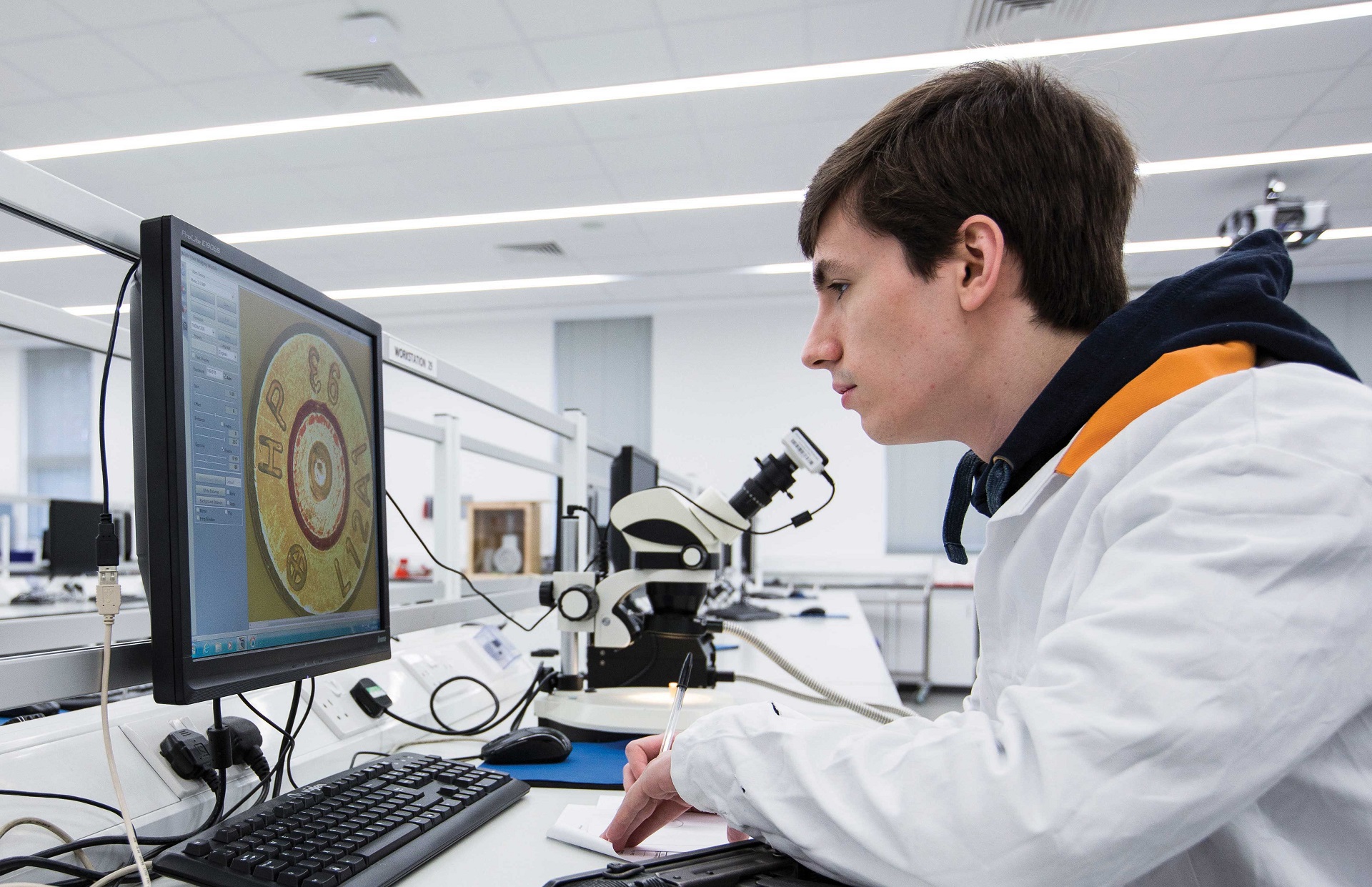
Forensic Science MSci
We have experts from different areas, very strong chemists, specialists in ballistics, DNA and crime scene investigation.
I’ve always been interested in science. I couldn’t decide just one area as my favourite, so I got to do all of them here because the course has a very strong science focus. This course is also highly rated in the independent university rankings and it offers an applied direction to the science. There’s a good mix, practical, written and research work, which covers a broad range of areas.
It’s going well. I’m working on my final-year project; you get a lot of independence. It’s great because it gives me a chance to put all the skills I’ve learnt over the course of my degree into practice. My project is on the contamination and transfer of gunshot residue. My supervisor is an expert in ballistics and it’s good working with him. Also, a big part of our third year, was giving ‘evidence’ in a simulated Crown Court setting. You weren’t quite sure what to expect at first, but it was a really valuable experience.
We have experts from different areas, very strong chemists, specialists in ballistics, DNA and crime scene investigations. They are all approachable, you can go to see them after lectures or email them out of office hours and they’ll always get back to you. Every student has an academic adviser, you also have a senior tutor and if you have any issues with anything you can go and talk to them. I am also part of the peer mentoring scheme in the School. Kent pays for our membership of the Chartered Society of Forensic Sciences and transport to the annual student conference, where we got to see how relevant and up-to-date what we had learnt was in the real world. It’s reassuring to know that we’re learning about the right things.
People come from all over and we all get on well. We’re all friends and we all want each other to do well.
This year, in particular, I’ve really enjoyed my project and the Incident Management module. The project gives me a lot of independence and I have greatly developed my understanding of the subject area and I hope to contribute something to the scientific field. With Incident Management, we did a table-top exercise managing a major incident. It gave us a strategic perspective on how the different emergency service organisations: police, fire and rescue and ambulance, work together. I really enjoyed that. It was a four-hour live exercise in real time and we had complete responsibility for all aspects of the response.
We have excellent labs and equipment for pretty much anything you want to do. It’s really helped with my project. We have cutting-edge equipment – the scanning electron microscope is an expensive piece of kit and it’s the best way to analyse the samples I’ve got for my project; without that I’d have to use other techniques which wouldn’t be as good.
I am President of the Forensic Science Society, I’ve been a member all through my course and now I’m part of the team running it. We have guest speakers, socials, we go on trips. We recently went to the Museum of London exhibition called The Crime Museum Uncovered. Previously the exhibits were only seen by police officers. It included evidence from some of the UK’s most notorious criminals including Dr Crippen, the Krays, the Great Train Robbery and the 7 July 2005 London bombings.
Have a good look at the specific courses you are interested in and the modules and think what you’ll get out of that. Don’t just go to university for the sake of it, pick a course that really interests you because that will help you out in getting a job you want when you graduate. When I started my degree, one of my lecturers told me to treat every day as a 9-5 job, if you consistently work hard throughout, you will come out with a good result and will have learnt a lot. Make the most of every opportunity.